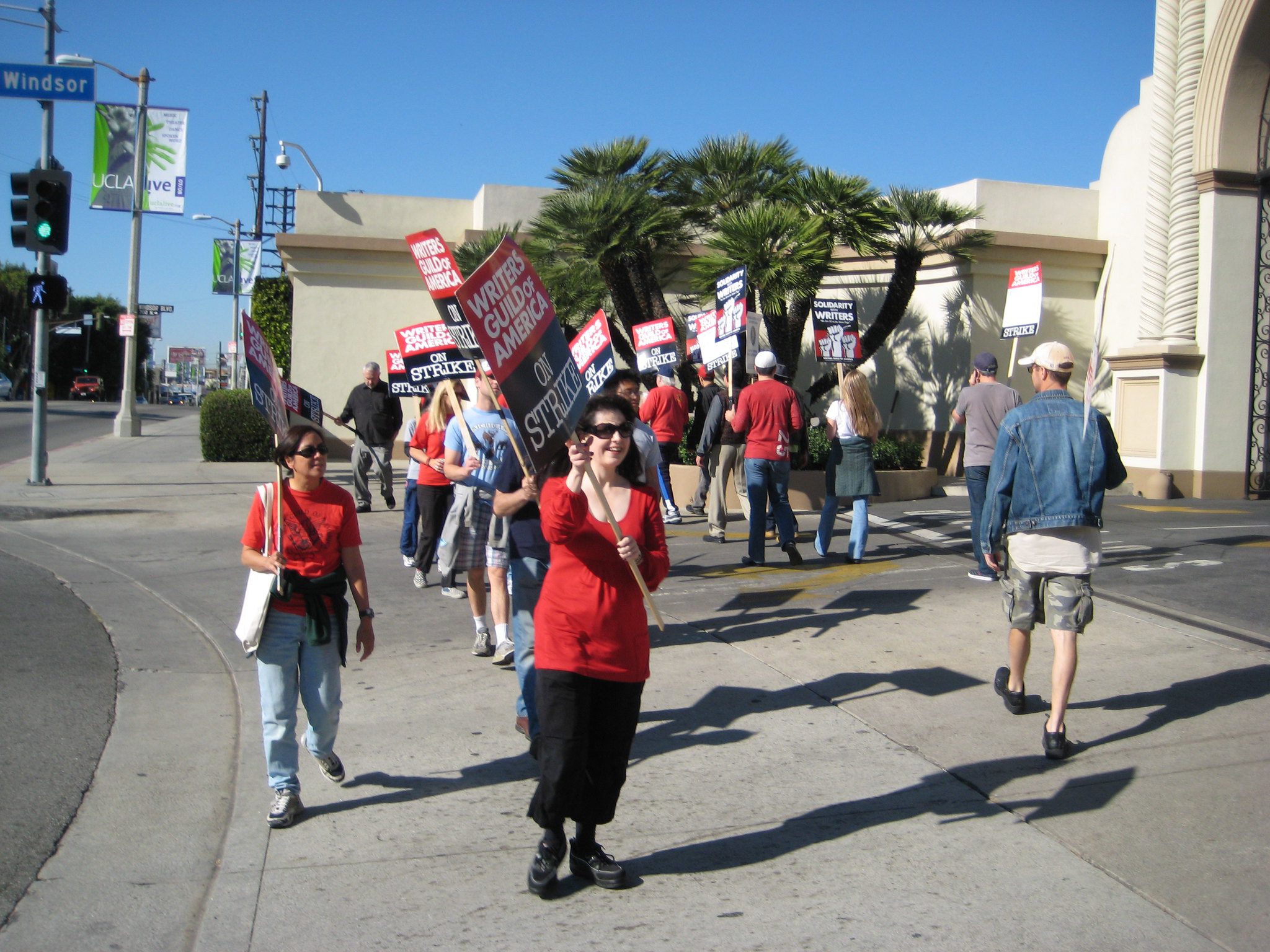With the strike by the Writers Guild of America now in its fourth week and no break in sight, picket lines will go up again Tuesday outside all the major L.A.-area studios — though the union has announced a different tactic for Friday with a planned “multi-union” rally downtown.
“We’re switching up the usual L.A. studio picket schedule so writers can turn out for a historic, multi-union rally,” the WGA said in a message to its members last week.
According to the WGA, writers will be joined at the rally by members of IATSE Local 11, AFSCME District Council 36, Teamsters Local 399, Teamsters Local 396, SEIU Local 99, SEIU Local 721, SEIU Local 1000, AFM Local 47 and UTLA.
The rally is planned for the corner of South Figueroa and West 12th streets, with the writers gathering at 4 p.m. for the 5 p.m. start.
Meanwhile, it will be back to the picket lines Tuesday at Amazon Studio in Culver City, CBS’ Studio City lot, Television City, The Walt Disney Co.’s corporate headquarters in Burbank, the Fox Studios lot, Netflix’s Hollywood headquarters, Paramount Studios in Hollywood, Sony Studios in Culver City, Universal Studios and Warner Bros. in Burbank.
Pickets have been the weekday routine at those locations since the writers walked off the job May 2.
In an email sent to its members on Monday, the WGA acknowledged how difficult it is for writers to be on strike and not get paid.
“I know it’s hard to be out there emotionally and physically,” WGA Negotiating Committee Member Danielle Sanchez-Witzel wrote in the email.
“But we must stay out there in big numbers. Because this is negotiating — being disruptive by picketing and leafletting and demonstrating in public, in combination with withholding of labor, is action. And we are now a significant part of a National and Global Labor Movement.”
The WGA is pushing for improvements on a variety of fronts, notably for higher residual pay for streaming programs that have larger viewership, rather than the existing model that pays a standard rate regardless of a show’s success.
The union is also calling for industry standards on the number of writers assigned to each show, increases in foreign streaming residuals and regulations preventing the use of artificial intelligence technology to write or rewrite any literary material.
The Alliance of Motion Picture and Television Producers, which represents the studios, has pushed back against some of the WGA’s demands, particularly around its calls for mandatory staffing and employment guarantees on programs. AMPTP has also pushed back against WGA demands around streaming residuals, saying the guild’s offer would increase rates by 200%.
The use of artificial intelligence has emerged as a major topic. The WGA says it wants a ban on the use of AI, and contends the AMPTP has refused to even negotiate the issue. The AMPTP said the issue raises “important creative and legal questions” and requires “a lot more discussion, which we’ve committed to doing.”
The strike has been having an impact on television viewing, with late night talk shows and “Saturday Night Live” all forced into reruns. The walkout has also prompted numerous television and film productions to shut down as other union members refused to cross the picket lines.
The last WGA strike lasted from November 2007 until February 2008. Industry experts estimated that 100-day strike cost the local economy between $2 billion and $3 billion.
With both sides still at loggerheads, many observers fear the current walkout could last even longer.
On June 7, the AMPTP is scheduled to begin negotiations with the SAG- AFTRA actors’ union, which has already come out in strong support of the striking writers. SAG-AFTRA has already begun conducting a strike-authorization vote among its members in advance of the labor talks.
The AMPTP began labor talks on May 10 with the Directors Guild of America, which is seeking to address many of the same issues involved in the WGA stalemate. The DGA’s contract with AMPTP expires June 30.







